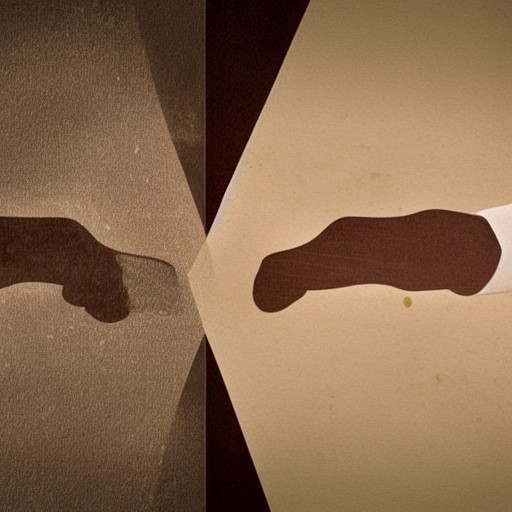Dissipation In Divorce
What Is Dissipation In Divorce? Like everyone, you may also hate Dissipation In Divorce. Property and asset division is a critical topic in every divorce. Spending money during a divorce may seem illogical because the whole point is to split up the couple’s assets.
People may not always think appropriately due to the emotional turbulence they are experiencing through a divorce. All the information you need regarding dissipation in divorce is covered here.
What Is Dissipation In Divorce?
In divorce proceedings, dissipation is utilizing marital assets for one spouse’s advantage or an unrelated activity. After a divorce, money problems can be very stressful. After a divorce, the two most demanding tasks are separating a couple’s combined money and determining what each partner may keep as separate property.
This is often a contentious and emotionally draining part of the divorce process. Some individuals, unfortunately, attempt to conceal or utilize property so they don’t have to share them with their ex-spouse during the assets division process. The dissipation occurs throughout the divorce process.
A spouse may file for dissipation of marital assets if they can show that their partner spent marital funds on anything other than the marriage (such as an extravagant gift, hotel stay, or plane ticket for an extramarital affair). When this is shown, the other spouse must prove that the funds were spent legally.
The court will make necessary adjustments to its property divide to account for dissipation if it deems it has happened. If you’re considering filing a claim for marital wealth dissipation, you may find the following information helpful.

How Dissipation Can Impact A Divorce Case
If money was an issue throughout your marriage, it’s likely to come up again while you’re trying to settle your divorce. When a couple decides to split their assets, deciding how to divide the money may be challenging, mainly if one partner has spent more than the other.
However, you should be conscious of your rights if there are any unfair or unwarranted variations in expenditure, such as wasteful dissipation. The courts will do their best to ensure that the split is as equitable as possible.
A court may award more of the marital estate to one spouse if they find that the other spent frivolously in the years leading up to or during the divorce. Not so much to punish the spender as to make up for the other partner’s losses caused by the spender.
What Factors Will A Court Consider When Determining If Dissipation Has Occurred?
The courts consider several elements, such as the following, while deciding whether or not dissipation has occurred:
- How much of a fair price is paid for a transfer;
- Value of assets given as a percentage of total assets of transferring spouse;
- How long it took for the divorce to be finalized once the property was transferred;
- The condition of the marriage when the transfer takes place;
- Where the transferred property came from (spousal, community, or marital property); and
- Whether the transfer is reversible or whether it is only apparent
- Assuming the spouse of the transferor and the recipient’s spouse are related.

Some Examples Of What Could Be Considered Dissipation
Dissipation, as defined by the law, is the concealment, depletion, or diversion of marital assets with the intent to reduce the amount of property subject to distribution in the event of a divorce. A few examples are as follows:
- Destruction of one’s property.
- Giving away, lending, or selling possessions for far less than they’re worth.
- Money poured into adulterous affairs.
- Wasted money due to gambling.
- Foreclosure occurs unnecessarily in a home.
- Negligible financial management results in wasteful expenditure.
- Causing damage to, losing, or neglecting household items.
How To Prevent Dissipating Assets During A Divorce Proceeding
Divorcing couples are legally obligated to reveal all of their financial dealings during the year before filing for divorce. Bank records, investment accounts, and business ledgers may all be examined for signs of asset mismanagement. When assets are improperly distributed via trusts and other unorthodox arrangements, the court has the authority to modify or even undo the settlement.
English Family Courts
The English family courts may order a divorcing party to return assets moved to another nation. They can enforce such judgments anywhere. In such instances, the court may cancel the transfer of assets or return them to the pot.
So they may be split among the parties as if the transfer never happened. If sufficient English-based assets exist, however, a court may be more inclined to order more of them to be given to the other spouse. Freezing injunctions are often given during divorce to safeguard the “innocent” party’s position until the financial claims are established if one party fears the other party may be preparing to sell or transfer assets.
Even while the court has broad powers to protect spouses from the other party’s dissipation of assets, it is wise to see a specialized family attorney. If you detect your spouse beginning to transfer assets in preparation for a divorce.
The Consequences Of Dissipating Assets During A Divorce
If you’re going to make a dissipation of assets claim, there are several things you need to keep in mind.
- The first requirement is that the amount is substantial enough for the court to consider when determining a fair distribution of marital assets.
- Second, there must be proof that the expenditures were unnecessary and exceptional, served no practical purpose, and began after the divorce. As a result, the criteria for fraudulent dissipation are unlikely to be met by a costly hobby or bad spending habits throughout the marriage.
It is necessary to assess the possible benefit against the expense of a forensic investigation while attempting to substantiate the dissipation of assets.

Frequently Asked Questions (FAQs)
How Do I Prove My Divorce Dissipation In Illinois?
Dissipation claims require a spouse to present proof of the date and manner of property dissipation. They are also required to prove particular dates marking the beginning and end of the marriage’s breakdown.
What Does Intentional Dissipation?
Intentional dissipation may occur when one spouse knowingly fails to properly care for a marital asset after filing a divorce suit. Hence, the court will not have access to such assets to divide them.
What Is Dissipation Depletion?
One may use asset dissipation, also known as asset depletion, in place of income when applying for a loan. The loan underwriter considers the borrower’s liquid assets (such as bank accounts, 401(k)s, and IRAs).
Final Verdict
Divorcing couples who suspect extramarital infidelity may find it helpful to look into their spouse’s spending habits before finalizing the divorce. One must use caution while utilizing marital income to support an extramarital affair. Remember that it is not appropriate to spend marital money on other people. Your partner probably won’t appreciate paying up for a spa weekend without them, and you can face dissipation in divorce.





